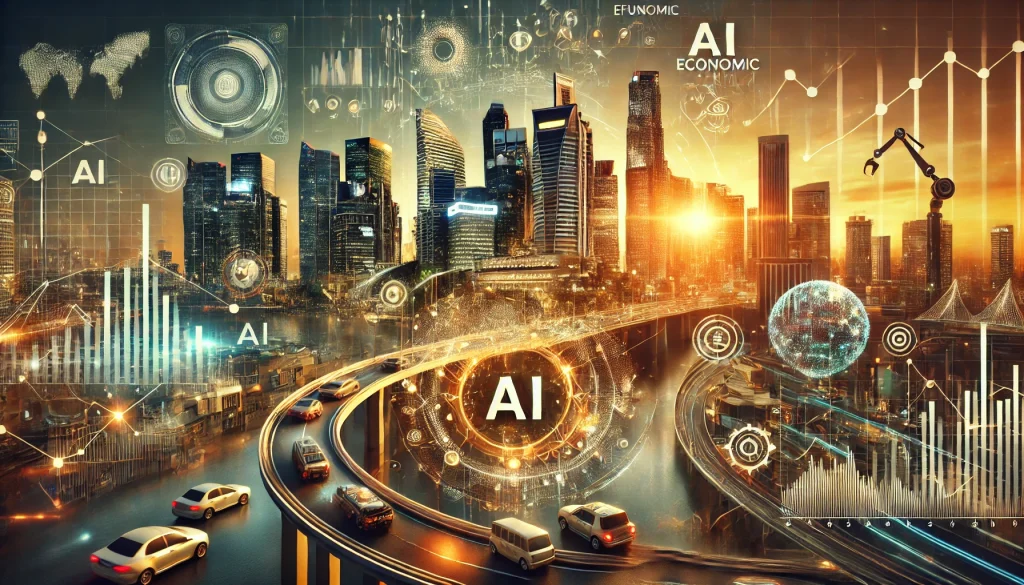Exploring Africa’s Technological Renaissance with AI

As we step into a new era, Africa is emerging as a vibrant hub of innovation and creativity, largely driven by the remarkable capabilities of artificial intelligence (AI). This technological renaissance is not just a buzzword; it represents a profound shift in how the continent addresses its unique challenges and leverages opportunities. With a population that is predominantly young and tech-savvy, Africa is poised to harness the power of AI to transform various sectors, from agriculture to healthcare.
Imagine a farmer in rural Kenya using AI-driven tools to predict weather patterns and optimise crop yields. This is not a distant dream; it’s happening now! AI is enabling farmers to make data-driven decisions, ultimately improving food security and boosting local economies. The ripple effects of such innovations extend beyond individual farmers, impacting entire communities and fostering growth.
However, the road to widespread AI adoption is not without its hurdles. Infrastructure gaps, limited funding, and a shortage of skilled professionals pose significant challenges. Yet, these obstacles present opportunities for growth and collaboration. By investing in education and training, Africa can cultivate a workforce equipped to thrive in this digital age.
The future looks bright for AI in Africa. As governments, businesses, and educational institutions come together to support this technological shift, we can expect a wave of economic growth and improved living standards. Strategic investments and international partnerships will be crucial in realising this vision. After all, the success of AI in Africa is not just about technology; it’s about empowering people and creating a sustainable future.
In conclusion, Africa’s technological renaissance with AI is an exciting journey filled with potential. As we continue to explore this landscape, it’s essential to celebrate the innovations while addressing the challenges head-on. The continent is on the brink of a transformative era, and the possibilities are endless.

The Rise of AI Startups in Africa
Africa is currently witnessing a remarkable surge in artificial intelligence startups, which are not just technological ventures but also beacons of hope for economic transformation. These innovative companies are emerging in response to unique local challenges, and they are paving the way for a brighter future. Imagine a landscape where technology is harnessed to solve pressing issues like healthcare accessibility, agricultural efficiency, and educational disparities. This is the reality that many African entrepreneurs are striving to create.
What’s truly exciting is the diversity of sectors that these startups are engaging with. From fintech to agritech, the applications of AI are extensive. For instance, companies like Agriview are utilising AI to analyse crop data, providing farmers with insights that were previously out of reach. This not only enhances productivity but also promotes sustainability—an essential factor for the continent’s future.
Furthermore, the rise of these AI startups is contributing significantly to job creation. According to recent studies, the tech sector in Africa is expected to generate millions of jobs in the coming years. However, it’s not just about numbers; it’s about empowering individuals with skills and opportunities. The startups are also fostering a culture of innovation, inspiring young minds to think creatively and pursue careers in technology.
| Sector | Startup Example | Focus Area |
|---|---|---|
| Fintech | Paystack | Payment processing |
| Agritech | Agriview | Crop data analysis |
| Healthtech | LifeBank | Blood and oxygen supply |
While the landscape is promising, it’s essential to acknowledge the hurdles these startups face. Issues like limited funding and infrastructure challenges can hinder growth. However, with the right support and investment, the potential for these AI-driven solutions to revolutionise industries across Africa is immense. As we explore the potential of AI further, one thing is clear: the continent is on the brink of a technological renaissance.

AI in Agriculture: Revolutionising Farming
Artificial Intelligence (AI) is not just a buzzword; it is a game-changer for agriculture in Africa. As the continent grapples with the challenges of food security and climate change, AI technologies are stepping in to offer innovative solutions. From precision farming to predictive analytics, farmers are now equipped with tools that help them make data-driven decisions that can significantly boost productivity.
Imagine a farmer in rural Kenya who can monitor the moisture levels in their fields through a simple app on their smartphone. This is not a scene from a futuristic movie; it is happening now, thanks to AI. These smart farming technologies enable farmers to:
- Maximise yields by analysing soil health and crop conditions.
- Reduce waste through efficient resource management.
- Enhance sustainability by minimising the environmental impact of farming practices.
Moreover, AI-driven platforms are facilitating market access for smallholder farmers. By providing real-time data on market prices and demand, farmers can make informed decisions about when and what to sell, ultimately increasing their income and improving their livelihoods. For instance, platforms like Tulaa are connecting farmers directly to buyers, eliminating the middlemen and ensuring fair prices.
However, the integration of AI in agriculture is not without its challenges. There is a pressing need for infrastructure development, as many rural areas lack reliable internet access. Additionally, training and education are crucial to ensure that farmers can effectively use these technologies. As we look ahead, the potential for AI to revolutionise farming in Africa is immense, but it requires a concerted effort from governments, NGOs, and the private sector to unlock this potential.
| AI Technology | Benefits |
|---|---|
| Precision Agriculture | Improved yield and resource efficiency |
| Predictive Analytics | Informed decision-making and risk management |
| Market Access Platforms | Better prices and reduced market barriers |
In conclusion, AI is set to transform agriculture in Africa, paving the way for a more sustainable and prosperous future. By embracing these technologies, farmers can not only enhance their productivity but also contribute to the continent’s overall economic growth.

Healthcare Innovations through AI
This article delves into the transformative impact of artificial intelligence on Africa, highlighting innovations, challenges, and the future potential of technology across the continent.
Africa is experiencing a surge in AI startups, fostering innovation and creating job opportunities. These companies are addressing local challenges and contributing to economic growth through technology-driven solutions.
Artificial intelligence is transforming agriculture in Africa, enhancing productivity and sustainability. Smart farming technologies are helping farmers make data-driven decisions, improving yields and food security across the continent.
AI is making significant strides in healthcare in Africa, from diagnostics to patient management. This technology is improving access to medical services and enhancing the overall quality of healthcare delivery. For instance, AI-driven tools are being used to analyse medical data, enabling quicker and more accurate diagnoses. Imagine a world where a simple scan can provide insights that previously took days to gather. This is not just a dream; it’s happening now!
Moreover, AI applications are streamlining administrative processes, allowing healthcare professionals to focus more on patient care rather than paperwork. By automating routine tasks, such as appointment scheduling and patient follow-ups, healthcare facilities can operate more efficiently. According to recent studies, hospitals implementing AI solutions have seen a 30% reduction in administrative burdens.
However, the integration of AI in healthcare is not without its challenges. Many regions face issues like infrastructure deficits and a lack of trained personnel. To tackle these hurdles, partnerships between governments, tech companies, and educational institutions are essential. For example, initiatives aimed at training healthcare workers in AI technologies are gaining traction, ensuring that the workforce is prepared for this digital transformation.
In summary, the impact of AI on healthcare in Africa is profound and multifaceted. As we continue to embrace these innovations, we can look forward to a future where quality healthcare is accessible to all, regardless of their geographical location.

Challenges to AI Adoption in Africa
While the potential of artificial intelligence (AI) in Africa is undeniable, the journey towards widespread adoption is fraught with challenges. One of the primary hurdles is the infrastructure gap. Many regions lack the necessary technological backbone, such as reliable internet access and electricity, which are crucial for AI applications to function effectively. Imagine trying to run a high-speed train on a track that barely exists; this is the reality for many aspiring tech innovators across the continent.
Another significant barrier is limited funding. Many startups struggle to secure the capital required to develop their AI solutions. Investors often hesitate, viewing African markets as high-risk. Furthermore, the need for skilled professionals cannot be overstated. The demand for expertise in AI far exceeds the current supply, leaving many companies scrambling to find qualified personnel. This skills gap not only hinders innovation but also stifles growth opportunities in the tech sector.
Moreover, regulatory challenges can pose significant obstacles. Governments are still grappling with how to create policies that foster innovation while ensuring ethical standards are met. This often leads to a confusing landscape where businesses are unsure of the legal frameworks they must navigate. As a result, many potential AI projects are left in limbo, unable to move forward.
Finally, there is a pressing need for public awareness and education about AI technologies. Many communities are unaware of the benefits that AI can bring, leading to resistance against adopting new technologies. To overcome these challenges, a collaborative effort involving governments, educational institutions, and private sectors is essential.
| Challenge | Impact |
|---|---|
| Infrastructure Gap | Limits access to technology and data |
| Limited Funding | Restricts startup growth and innovation |
| Skills Gap | Slows down project implementation |
| Regulatory Challenges | Creates uncertainty for businesses |
| Public Awareness | Reduces acceptance of AI solutions |
Addressing these challenges is crucial for unlocking the full potential of AI in Africa. As the continent stands on the brink of a technological renaissance, overcoming these obstacles will pave the way for a brighter, more innovative future.

The Role of Education in AI Development
Education is the cornerstone of artificial intelligence (AI) development in Africa, serving as the fuel that powers the continent’s technological engine. As the demand for skilled professionals in the AI field skyrockets, educational initiatives are emerging to bridge the skills gap. These initiatives are not just about traditional learning; they encompass a wide range of methods to ensure that the youth are equipped with the necessary tools to thrive in a tech-driven world.
One of the most exciting aspects of this educational revolution is the integration of AI-related curricula into schools and universities. Institutions are recognising the importance of teaching not only the theoretical aspects of AI but also practical applications. This includes hands-on experience with data analysis, machine learning, and programming languages such as Python. In fact, many universities across Africa are now offering dedicated courses and degrees in AI, which is a significant step towards fostering a tech-savvy workforce.
Moreover, partnerships between educational institutions and tech companies are becoming increasingly common. These collaborations aim to create internships and mentorship programmes that provide students with real-world experience. For instance, organisations like AI4Africa are working tirelessly to connect students with industry experts, ensuring that they gain insights into the latest trends and technologies.
However, it’s not just about formal education. Community-based initiatives also play a critical role. Coding boot camps, workshops, and online courses are popping up, making AI education accessible to a broader audience. These programmes often focus on underrepresented groups, empowering women and rural youth to engage in AI development. By fostering inclusivity, Africa can harness the full potential of its diverse population.
| Initiative | Description | Impact |
|---|---|---|
| AI4Africa | Connecting students with industry experts | Increased employability and skill development |
| Coding Boot Camps | Intensive training programmes for aspiring developers | Enhanced technical skills and job readiness |
| Online Courses | Accessible learning for anyone with internet | Broadened participation in AI education |
In conclusion, the role of education in AI development in Africa cannot be overstated. It is not merely a pathway to employment; it is a means of empowering individuals and fostering innovation. As the continent continues to embrace technology, investing in education will be the key to unlocking Africa’s full potential in the AI landscape.

Future Prospects: AI and Economic Growth
The future of artificial intelligence in Africa is not just a fleeting trend; it’s a potential game-changer for the continent’s economic landscape. As countries embrace AI technologies, the prospect of driving significant economic growth becomes increasingly tangible. Imagine a scenario where AI optimises supply chains, enhances productivity, and stimulates innovation across various sectors. This is not just a dream—it’s becoming a reality.
With strategic investments and partnerships, Africa can harness the full potential of AI to create new industries and job opportunities. For instance, sectors such as agriculture, healthcare, and finance are already witnessing transformative changes. The integration of AI can lead to:
- Increased Efficiency: AI algorithms can analyse vast amounts of data, helping businesses make informed decisions swiftly.
- Job Creation: While some fear automation will replace jobs, AI also creates new roles in tech development and data analysis.
- Enhanced Services: From personalised healthcare to smarter financial solutions, AI can significantly improve service delivery.
However, it’s essential to address the challenges that accompany this technological shift. Infrastructure gaps, a lack of funding, and the need for skilled professionals must be tackled head-on to ensure that the benefits of AI are realised across the continent.
Moreover, education plays a pivotal role in this transformation. By equipping the youth with necessary skills in AI and technology, Africa can build a workforce ready to embrace the future. Investments in education, research, and development will be crucial in sustaining this momentum.
In conclusion, the future prospects of AI in Africa are bright, with the potential to not only boost economic growth but also to improve living standards. As we stand on the brink of this technological renaissance, the collaboration between governments, private sectors, and educational institutions will be vital in realising this vision. The journey is just beginning, and the possibilities are endless.
Frequently Asked Questions
- What is the impact of AI on agriculture in Africa?AI is revolutionising agriculture in Africa by enabling farmers to utilise smart farming technologies. These innovations help in making data-driven decisions, which ultimately lead to increased productivity, better yields, and enhanced food security across the continent.
- How are AI startups contributing to Africa’s economy?AI startups in Africa are fostering innovation and creating job opportunities. By addressing local challenges with technology-driven solutions, these companies are significantly contributing to economic growth and the development of the tech ecosystem.
- What challenges does Africa face in adopting AI?Despite its potential, Africa faces several challenges in AI adoption, including inadequate infrastructure, limited funding, and a shortage of skilled professionals. Overcoming these hurdles is essential for harnessing the full benefits of AI technology.
- How is AI improving healthcare in Africa?AI enhances healthcare in Africa by improving diagnostics, patient management, and access to medical services. This technology is crucial for elevating the overall quality of healthcare delivery, making it more efficient and accessible to those in need.
- Why is education important for AI development in Africa?Education is vital for developing a tech-savvy workforce that can drive AI innovation. Initiatives aimed at equipping the next generation with the necessary skills are essential for sustaining growth and ensuring that Africa remains competitive in the global tech landscape.
- What does the future hold for AI in Africa?The future of AI in Africa is bright, with immense potential to drive economic growth and improve living standards. Strategic investments and collaborations will be key to realising this vision and unlocking the continent’s full capabilities in technology.













